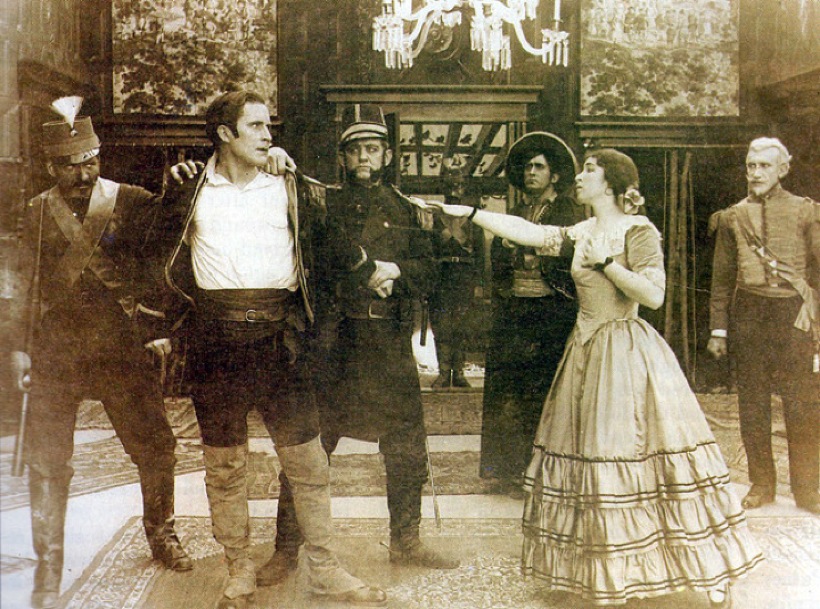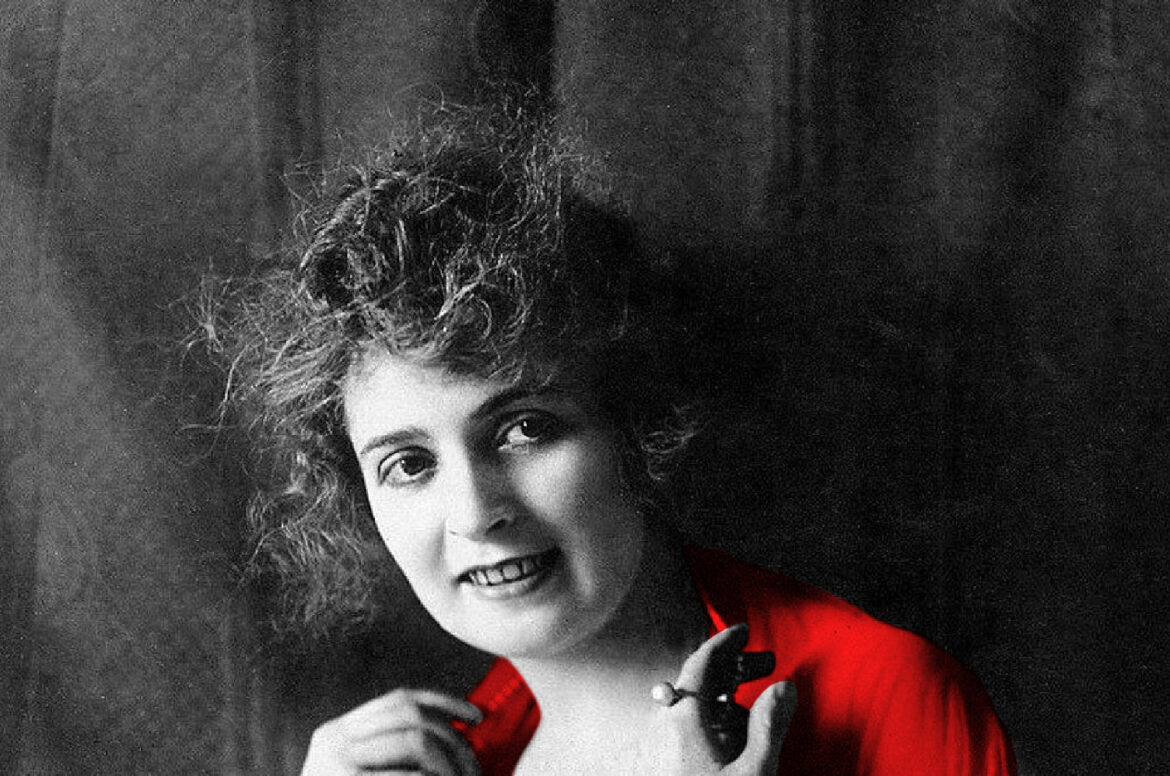The Rise of a Star in the Silent Era
In the annals of Hollywood history, Myrtle Gonzalez holds a unique position as one of the pioneering actresses of the silent film era. Born on September 28, 1891, in Los Angeles, California, Gonzalez’s entry into the acting world was almost predestined. Coming from a family with artistic inclinations, her father was a well-known orchestra conductor, and her mother was a stage actress. This environment naturally inclined Gonzalez towards the performing arts from a young age.
Her career began on stage, as was typical for many actors before the advent of cinema. Gonzalez’s stage performances quickly garnered attention for her natural beauty and compelling presence. However, the nascent film industry would catapult her to fame. Transitioning from the stage to the screen in the early 1910s, she quickly became one of the most sought-after actresses in Hollywood, a feat particularly remarkable considering the era’s rampant gender and ethnic biases.
Pioneering Latina in Hollywood

Gonzalez’s heritage also sets her apart as a trailblazer. Of Mexican descent, she is often recognized as one of the first Latinas to find success in the Hollywood film industry. At a time when racial stereotypes were rampant and roles for Latina actresses were severely limited, Gonzalez’s success was groundbreaking. Her ability to break through these barriers and establish a successful career in Hollywood’s early days is a testament to her talent and determination.
Throughout her career, Gonzalez was cast in various roles that showcased her versatility as an actress. She was mainly known for her roles in early Westerns, a genre immensely popular then. In these films, she often portrayed strong, independent women, a stark contrast to the damsel-in-distress archetype prevalent in cinema then. Her characters were not just love interests or secondary figures; they were central to the story, often displaying courage, intelligence, and resilience.
Myrtle Gonzalez in the Spotlight
Gonzalez’s most notable films include works like “The Brand”, “The White Dove”, and “The Greater Law”. Her performances were acclaimed in these films for their authenticity and emotional depth. Her ability to convey complex emotions without spoken dialogue – a necessity in the silent film era – was particularly remarkable. She had an innate ability to communicate with her eyes and facial expressions, a skill that made her performances compelling and memorable.
One of her most significant roles was in the 1917 film “The Girl of the Timber Claims”. In this movie, Gonzalez played the role of Edith, a strong-willed woman fighting for her rights in a male-dominated environment. The film was significant not only for its portrayal of a strong female character but also for its depiction of the struggles faced by women during that period.
Challenges and Triumphs
Gonzalez’s career, however, was not without its challenges. Working in an industry dominated by men, she often had to fight for fair treatment and recognition. Despite these obstacles, she remained committed to her craft and continued to deliver performances that won the hearts of audiences and critics alike. Her resilience in the face of these challenges inspired other women in the industry and paved the way for future generations of actresses.
Her influence extended beyond the screen. Gonzalez was known for her work ethic and professionalism, setting a standard for actors and actresses of her time. She was also involved in various aspects of filmmaking, from helping to develop her characters to understanding the technical aspects of film production.
Personal Life and Legacy
Off-screen, Gonzalez’s life was equally intriguing. She was married twice, first to actor and director Allen Watt and later to William Gantz, a prominent doctor. Her personal life, however, was often overshadowed by her professional achievements.
Tragically, Myrtle Gonzalez’s life and career were cut short when she passed away at the young age of 27 due to complications from the Spanish Flu pandemic in 1918. Her death marked a premature end to a burgeoning career and left many to wonder what heights she might have reached had she lived longer.
Despite her brief life, Gonzalez’s impact on Hollywood and the representation of Latinas in cinema was profound. She blazed a trail for other minority actresses and demonstrated that talent and determination could overcome the barriers of race and gender. Her legacy is not just in the roles she played or the films she appeared in but in the doors she opened for those who came after her.
Filmography: The Mark of Myrtle Gonzalez

Myrtle Gonzalez’s filmography is a testament to her versatility and talent. Some of her most notable films include:
- “The Brand” (1914): A dramatic tale where Gonzalez showcased her emotional range.
- “The White Dove” (1914): Playing a solid and independent character, this film further cemented her status in Hollywood.
- “The Greater Law” (1917): A movie highlighting her ability to portray complex characters.
- “The Girl of the Timber Claims” (1917): Perhaps her most famous role was playing Edith, a woman fighting for her rights.
- “A School for Husbands” (1917): A lighter role, showing Gonzalez’s versatility in different genres.
- “Hands Up!” (1917): A thrilling Western where she again played a formidable female character.
- “The Love That Lives” (1917): A romantic film that displayed her ability to connect with the audience emotionally.
- “The Law of the Great Northwest” (1918): One of her last films, showcasing her enduring talent in the Western genre.
This selection of films highlights the breadth of Gonzalez’s acting abilities and the diverse range of themes and genres she explored in her career.
Remembering Myrtle Gonzalez
Today, Myrtle Gonzalez’s contributions to early Hollywood are often overlooked, overshadowed by the luminaries of the later silent era and the Golden Age of Hollywood. However, her significance as one of the first Latina stars and a film industry pioneer remains undeniable. Her story is one of talent, determination, and resilience, inspiring aspiring actors and actresses of all backgrounds.
Though brief, Myrtle Gonzalez’s journey in Hollywood was marked by a series of notable firsts and groundbreaking achievements. She paved the way for future generations of Latina actresses and helped shape the early landscape of American cinema. Her legacy endures as a reminder of the diverse talents that have contributed to the rich tapestry of Hollywood’s history. In remembering Myrtle Gonzalez, we celebrate not just a pioneering presence in early Hollywood but also a symbol of enduring strength and inspiration in the face of adversity.




